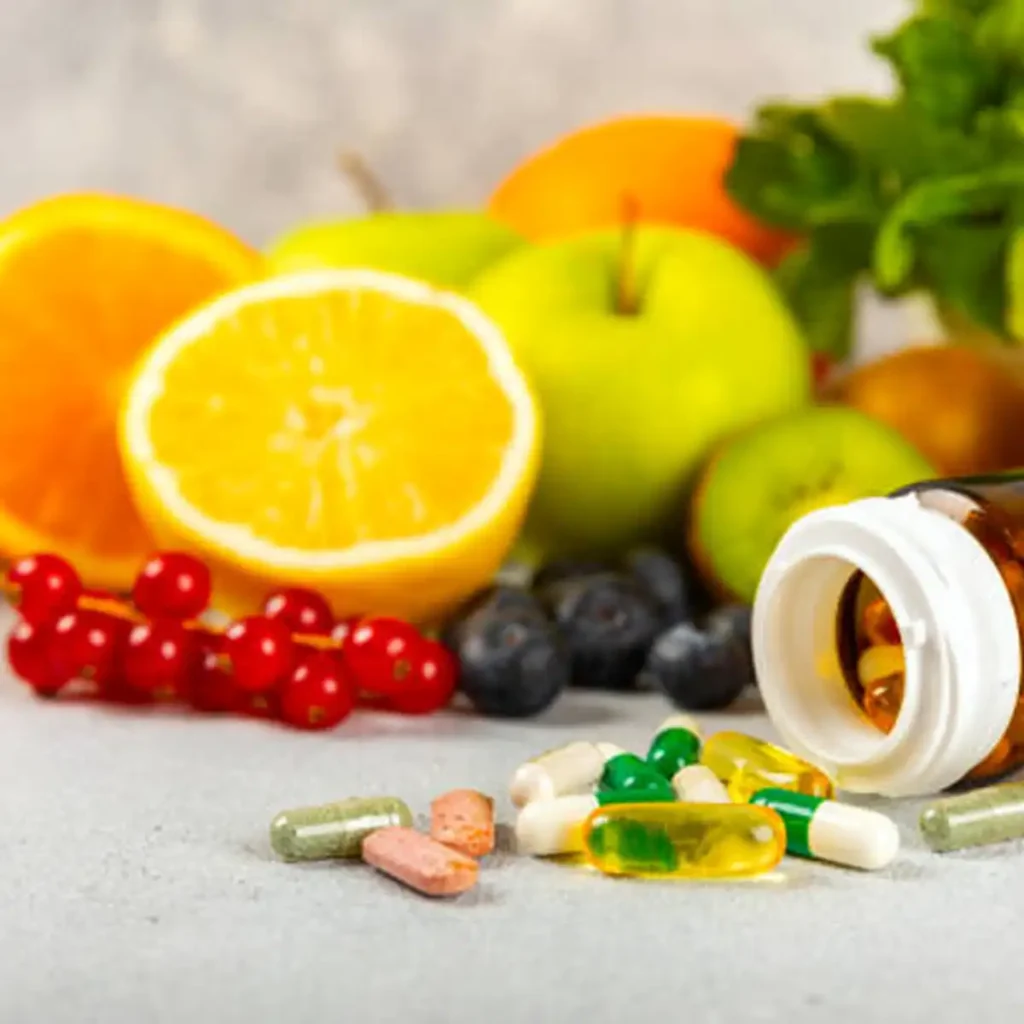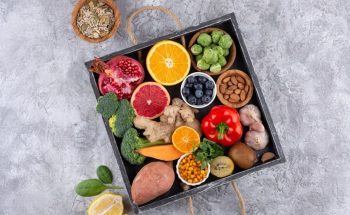London moves fast. Work overruns, sleep slips, and lunch becomes whatever fits between meetings. It is little wonder that supplements promise an easy fix. A capsule hints at more energy, clearer skin, calmer moods, and stronger immunity. The attraction feels simple. Yet the truth is less tidy. UK data shows strong demand, but purchase decisions tend to rest on practical judgments like value, price, and brand trust rather than influencer hype. The headlines may glow on TikTok, yet most people buy only when the numbers and the track record add up.
Start with one solid principle. Food comes first. The UK Eatwell Guide sets the blueprint for a balanced diet that delivers most nutrients for most people most of the time. Pills can help when there is a proven gap or a specific need. They cannot replace the complex mix of fibre, omega-3, phytonutrients, and other compounds found in whole foods. This article keeps you on that ground. It separates marketing from evidence, and it gives you a practical route through rules, labels, risks, and worthwhile options. The aim is not to sell a trend. It’s designed to help you spend wisely, stay safe, and establish a routine that actually works.
Fun fact: In the UK, supplements are legally foods, not medicines, which is why they do not undergo the same pre-market approval as drugs.
The UK supplement boom explained without the hype.
The UK market for dietary supplements remains large and is forecast to keep growing into 2025 and beyond. Reports differ on exact values and growth rates. Yet, they point in the same direction: rising demand across categories such as energy, brain health, and heart health, with sports-linked products also expanding as gym and training participation increase. What matters for you is not the most significant number in a press release. It is the takeaway that sustained demand exists, and that competition brings more choice plus more noise.
Three forces drive this growth. First, an ageing population increases interest in nutrients linked to bones, muscles, and joints. Second, health awareness keeps climbing. Many adults track their steps, sleep, and stress levels, then seek targeted support. Third, social platforms amplify trends at speed. Posts spark curiosity about vitamin D, plant-based powders, and performance aids. Yet when money changes hands, trust shifts back to price, value for money, and known brands. That split explains the daily feed of superfood claims alongside the quiet power of the label and the receipt.
The information paradox and how to handle it
Influencers create attention. Buyers demand proof. Surveys show that people may discover a product on Instagram or TikTok, but they complete purchases based on price, perceived value, and previous positive experience. Few cite influencers as the deciding factor. The paradox is apparent. Viral trends push awareness up while trust often lags. Your best defence is a method: read labels, check doses against NHS advice, look for third-party testing, confirm GMP standards, and avoid vague proprietary blends. Curiosity starts the search. Evidence should end it.
Food first, always and where supplements fit in
The Eatwell Guide advises basing meals on higher-fibre starchy carbohydrates, eating at least five portions of fruit and veg a day, choosing beans, pulses, fish, eggs, and lean meats for protein, and including dairy or fortified alternatives for calcium and iodine. It works for most people over 5, including vegans and vegetarians, with sensible adjustments such as vitamin B12 from fortified foods or supplements for plant-based diets.
Supplements can be beneficial when there is a specific need. Common examples include vitamin D during months with limited sunlight, folic acid for people who may become pregnant, B12 for vegans, and targeted support for older adults where absorption can decline. Use them as tools to fill proven gaps. Do not let them displace meals built around vegetables, whole grains, legumes, nuts, seeds, quality proteins, and healthy fats. Food supplies a matrix of compounds that a single tablet cannot recreate.
Are “superfoods” worth it or just good copy
Superfood is a marketing term. It often wraps traditional ingredients in bold claims. Here is a clear view of three popular choices in UK shops and online.
Turmeric benefits, limits, and sensible use
Turmeric’s star compound is curcumin. Studies suggest that it can lower inflammatory markers, such as CRP and TNF-alpha, in certain groups. Trials report potential benefits for joint comfort in conditions like rheumatoid arthritis and possible improvements in lipids and blood pressure for specific populations. There is early work on memory effects at modest daily doses. Its antioxidant activity is well described in laboratory models.
Set that against caveats. Some users report digestive upset, including bloating, nausea, or abdominal discomfort. Effects on cholesterol may be minor or not present in people with type 2 diabetes. Results vary for liver conditions and Alzheimer’s disease. Research quality is mixed, with wide dose ranges from tens of milligrams to grams per day, and inconsistent protocols. If you try a turmeric or curcumin product, read the dose, check for piperine or formulated forms that improve absorption, and review other medications for interactions. Evidence points to possible help for specific needs, not a cure-all.
Hemp seeds nutrition strength without the hype
Hemp seeds offer complete protein with all essential amino acids. They bring omega-6 and omega-3 polyunsaturated fats, plus phosphorus, potassium, magnesium, and vitamins such as A, D, and E. As a food, they are easy to use. Sprinkle on porridge, salads, yoghurt, or smoothies. The nutrition profile is solid.
Health claims need care. Some proposed heart benefits draw from animal data that has not yet been confirmed in robust human trials. Fibre helps bowel regularity, yet more clinical evidence would clarify the effect size. Early work around skin comfort, including eczema symptoms, suggests possible support from hemp oil in some cases, but findings are limited. Treat hemp as a nutrient-dense food that supports a varied diet. Buy products with transparent sourcing and avoid those padded with sweeteners or flavour additives that add little value.
Maca powder claims and what studies actually show
Maca is a Peruvian root with a long history of traditional use. Modern marketing often labels it as an adaptogen that helps the body manage stress. Preclinical work reports antioxidant and anti-inflammatory effects, and small clinical studies suggest possible improvements in libido in adults. There is limited evidence for benefits to mood markers in specific groups such as postmenopausal women.
Two points matter. Adaptogens are not a regulated medical category, and broad claims about stress support require strong clinical evidence, which is currently lacking. Second, the quality, dose, and processing of maca powders vary widely. If you enjoy maca’s flavour in a smoothie and feel it supports your routine, fine. If you are buying for a specific outcome, seek products with third-party testing, set clear expectations, and review any interactions or contraindications with a qualified professional.
UK supplement regulation in plain English
Food, not medicine, in UK law
In the UK, food supplements are regulated as foods. They do not go through the same pre-market licensing process as medicines. The Food Safety Act 1990 governs safety and how products are described. Post-Brexit, the UK has retained key elements of EU rules on supplements to maintain standards. The practical result is clear responsibilities for safe composition and honest labelling, plus post-market oversight by authorities and local trading standards.
What you can claim on labels and adverts
Medical claims, such as “prevent, treat, or cure disease,” are not allowed for foods. Nutrition and health claims are permitted only if they meet strict criteria and are authorised. Examples include statements like calcium is needed for normal bones. In Great Britain, the UK Nutrition and Health Claims Committee evaluates new claims. When reading a label or advert, treat unapproved disease language as a red flag. Stick to products that make permitted claims or focus on straightforward nutrition facts.


Key 2025 updates that change what you buy
One notable change affects vitamin B6. The maximum daily dose for adults in supplements has been reduced from higher previous levels to 6 mg to minimise the risk of nerve-related side effects from excess intake. There are also approvals for specific novel ingredients, such as vitamin D2 mushroom powder for use as a source of vitamin D in certain products, and more bioavailable iron forms are now on permitted lists. Tighter scrutiny around plant-based health claims continues, with ingredients needing explicit approval before any claim appears on pack or in ads. These shifts push brands toward more explicit labelling and away from vague promises.
Where enforcement falls short and why you must stay vigilant
UK rules are strong on paper, but enforcement is often reactive. A product can slip through with misleading claims or off-spec doses until someone complains. Recalls do happen. In 2025, products with excessive vitamin D were pulled due to toxicity risk. Imported items can also deviate from UK or EEA standards. Your best move is to buy from reputable UK retailers, read batch numbers, check for Certificates of Analysis, and avoid deals that seem too good to be true.
The intelligent shopper’s checklist that saves money and risk
A method beats a marketing pitch. Use this checklist before you add to the basket.
| Criterion | Why it matters | What to look for |
| Third-party testing | Confirms purity, potency, and label accuracy | Seals such as NSF Certified for Sport or a visible Certificate of Analysis on the brand site |
| GMP certification | Shows controlled manufacturing and consistent quality | GMP or ISO certification shown on the pack or verified online |
| Ingredient transparency | Stops hidden doses and unnecessary fillers | Complete list with exact amounts and no proprietary blends |
| Dose and safe upper level | Prevents toxicity and underdosing | Compare the label with NHS advice and known Tolerable Upper Intake Levels |
| Fillers and additives | Signals brand priorities and product purity | Avoid titanium dioxide, hydrogenated oils, and artificial colours and sweeteners |
| Place of purchase | Links to compliance with UK standards | Buy from trusted UK retailers or brand sites with precise contact details |
A few extra checks help. Search for adverse event reports and read several independent reviews rather than a single glowing testimonial. Confirm allergen statements. For powders, look for heavy-metal testing, especially in plant-based products.
When professional guidance beats guesswork
Why a personalised plan works better
Self-selecting supplements can miss the mark. Diet gaps, absorption issues, medications, and personal goals differ from person to person. A qualified expert can map your diet, symptoms, and lab results to a targeted plan that addresses causes, not just signs. Interactions matter.
Vitamin E can increase bleeding risk when combined with blood thinners. High-dose biotin can interfere with laboratory tests, including those used to assess heart damage. An expert helps you prioritise tests and pick forms and doses that fit your needs.
Who to see in London and how to check credentials
The HCPC regulates dietitians and works with clinical conditions such as diabetes, coeliac disease, and IBS in the NHS and private practice. Nutritionists on the AfN register meet defined standards. Titles include Registered Associate Nutritionist, which signals degree-level knowledge, and Registered Nutritionist, which adds demonstrated professional practice. Use the AfN register to filter by area and specialism. Ask for transparent pricing, scope, and follow-up. The point is simple. Choose someone whose qualifications you can verify, whose process includes diet assessment and, where relevant, testing, and whose plan explains the why behind each product and dose.
A food-first recipe that delivers real value
Superfood smoothie that earns its name through ingredients
You can build a high-value breakfast in 2 minutes. This beet and berry smoothie uses foods backed by plausible mechanisms and practical benefits.
Ingredients.
1 cup frozen mixed berries.
1 frozen banana.
1 to 2 teaspoons beetroot powder.
2 tablespoons chia seeds.
1 cup milk of your choice; unsweetened nut milk works well.
1 tablespoon maple syrup or honey, optional.
Method.
Add all ingredients to a blender. Blend on high until smooth and vividly pink. Sweeten to taste if needed. Serve at once.
Why does this work when a pill will not
Beetroot powder supplies nitrates that convert to nitric oxide, which supports vasodilation and healthy blood pressure. Chia seeds add fibre, plant protein, and omega-3 ALA, which together support satiety and heart health. Mixed berries deliver polyphenols and vitamin C. The result is a breakfast that is easy, affordable, and nutrient-dense. It supports training days and busy commutes without chasing a trend.
Putting it all together without losing your head or your budget
Trends rise and fall. Your body still needs regular meals, adequate sleep, daily movement, and time outside. Use supplements as precise tools, not as a substitute for habits. Start with food and a short list of confirmed needs. Buy from reputable UK retailers. Read labels. Prefer products with third-party testing and GMP standards. Check doses against NHS advice. If your goals are specific or your health is complex, book time with a Registered Nutritionist or a dietitian.
Close with one thought. Consistency beats novelty. The best routine is the one you keep. As the saying goes, measure twice, cut once.





